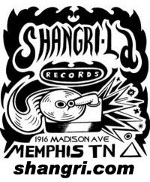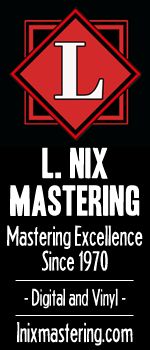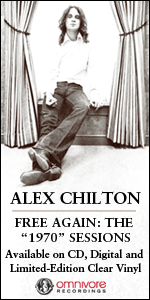If you have never heard of Roland Janes, he is one of the unsung heroes of the Memphis music industry (back when there was one) and also, along with Carl Perkins and Scotty Moore, defined the guitar style that came to be known as rockabilly.
He played on the majority of Jerry Lee Lewis’ 150+ Sun recordings. That alone gives him an unquestionable pedigree in Memphis and world music, but Roland also was a founding member of Billy Lee Riley’s Little Green, played live with and recorded an uncountable number of Sun sessions with artists like Charlie Rich and Sonny Burgess among many others, opened Sonic Studio in 1962 (where he recorded almost all the local bands who made appearances on George Klein’s Talent Party show, which aired Saturday afternoon on WHBQ TV’s Channel 13), and owned or co-owned a number of independent record labels in the ’60s and early ’70s.
Since 1982, he has been working at Phillips Studios as a producer and engineer, which is where I first encountered him on a Tav Falco’s Panther Burns album recording session in the spring of 1984.
My first memories of Roland are of a man who used few words, but when he did speak you always learned something about the art of studio recording or the true, often untold story of Memphis music history. My friend, Rob Bowman, and I talked to him that spring for a lengthy interview essay that would eventually end up appearing in the vinyl boxed set, Sun Records: The Rocking Years.
On that occasion we managed to make Roland rather angry and that was a rare but memorable experience. Nothing much flusters Roland since he has truly seen it all when it comes to musicians’ outsized egos, but we unintentionally insulted him that day when we concluded the interview with his musical activities up to about 1974. As I recall, Rob said something like: “Well, I guess that about covers things, doesn’t it?” Roland’s response was immediate, pointing out in no uncertain terms that he was not dead yet and that his music career was far from over. Almost twenty eight years after that interview, his statement that day is still true.
And in the past few months I have played drums on more sessions with him at Phillips Recording than at any other time since the mid ’80s. And as always, Roland is still a fountain of knowledge regarding recording technique and science. What is hard to convey here is how funny he is when engineering or recording a session.
The following story may convey the flavor of that humor. In October of 1986, the Panther Burns were doing another record at Phillips, The World We Knew, and Alex Chilton was producing, and Roland was engineering. One day, Alex partook in what might be termed as some strong herbal refreshment and curled up under the studio console for a nap. Someone came into the room and asked where the producer was, and Roland merely nodded downward at Alex snoozing next to his feet. The room dissolved into laughter at that nonverbal remark. Well, you probably had to be there, but every session I have ever done with Roland is filled with moments where he skewers any artistic pretensions with his quiet but terribly effective wit.
Here is another story from Roland’s lips as accurately as I can recall it. I think it illustrates the fact that Roland can’t be impressed or intimidated by any so-called music biz legends. During the summer of 1983, former Led Zeppelin singer, Robert Plant, played Mud Island in Memphis with now retired drummer/singer, Phil Collins. Plant booked a recording session at Phillips Recording after the concert because he wanted to record with a real legend, Roland.
Roland set up the drums for the session but was unaware that Collins was left-handed and played the drum kit in a left-to-right set-up. (For the record, it should be noted that Ringo Starr was also left-handed but played his drums in a traditional, right-to-left style.) When Plant and Collins arrived at the studio, the latter remarked, “But Roland, I’m left-handed, and I can’t play a right-handed kit. This needs to be sorted out.” The drums were then set up for Collins’ left-handed needs, but I don’t think it was Roland Janes who reconfigured the kit.
Speaking of music biz legends, last summer when Bob Dylan played Memphis, he too, booked a recording session afterward with Roland engineering at the Phillips Studios console. Dylan has long been known as a Roland fan, particularly of the work he did with the Little Green Men. Roland is one of the last old-school engineer/producers working in Memphis or maybe even the world.
Roland still has the artist run through the song they are about to cut a few times until he is satisfied that the tune is ready to be recorded before he will turn on the analog tape machine (yes, Phillips Studio cuts on analog and then mixes down to digital) for “the take.” I played a session with Roland last weekend, and he helped the singer through her paces and even coached a vocal performance out of her that she did not know she was capable of recording.
The late Jim Dickinson never missed a chance to record with Roland. These days, neither do I. “Ah, take it Roland, boy,” as Jerry Lee once sang just before Roland played a jaw dropping guitar solo. Take it indeed, Mr. Janes.
Ross Johnson Photo: Don Perry











